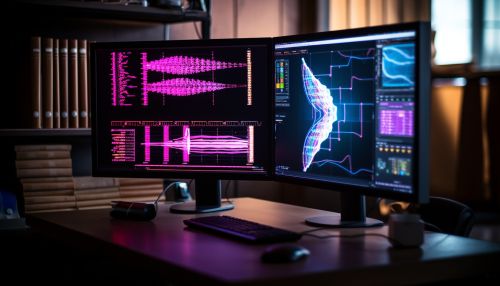Role of Bioinformatics in Cancer Research
Introduction
Bioinformatics is an interdisciplinary field that develops methods and software tools for understanding biological data. In the context of cancer research, bioinformatics is used to identify and analyze genetic variations and abnormalities that lead to cancer. This involves the use of computational tools to gather and analyze 'big data' from research studies and clinical trials, with the aim of understanding the genetic basis of cancer, improving cancer treatments, and predicting patient outcomes.


Role of Bioinformatics in Cancer Research
Bioinformatics plays a crucial role in cancer research, providing tools and methods that allow researchers to analyze and interpret the complex and large-scale data sets that are generated by genomic and proteomic studies.
Genomic Data Analysis
One of the primary applications of bioinformatics in cancer research is in the analysis of genomic data. This involves the use of computational tools to identify genetic variations and mutations that are associated with cancer. These genetic changes can include single nucleotide polymorphisms (SNPs), copy number variations (CNVs), and other types of genetic mutations. Bioinformatics tools can also be used to analyze gene expression data, which can provide insights into the genes that are upregulated or downregulated in cancer cells.


Proteomic Data Analysis
In addition to genomic data, bioinformatics can also be used to analyze proteomic data. This involves the use of computational tools to identify and quantify the proteins that are present in a sample, and to analyze the changes in protein expression that occur in cancer cells. This can provide valuable insights into the molecular mechanisms of cancer and can help to identify potential targets for cancer treatments.


Drug Discovery and Development
Bioinformatics also plays a key role in the discovery and development of new cancer treatments. This involves the use of computational tools to identify potential drug targets, to design new drugs, and to predict the effects of drugs on cancer cells. Bioinformatics can also be used to analyze clinical trial data, which can help to determine the efficacy and safety of new cancer treatments.


Predictive Modeling
Another important application of bioinformatics in cancer research is in predictive modeling. This involves the use of computational tools to predict the outcomes of cancer patients based on their genetic data and other clinical information. These predictive models can help to guide treatment decisions and can provide valuable prognostic information.


Challenges and Future Directions
Despite the significant advances that have been made in the field of bioinformatics, there are still many challenges that need to be overcome. These include the need for improved computational tools and algorithms, the need for better integration of different types of data, and the need for more effective methods of data sharing and collaboration. Looking to the future, it is expected that bioinformatics will continue to play a crucial role in cancer research, and that the field will continue to evolve and develop in response to the changing needs of cancer researchers.


